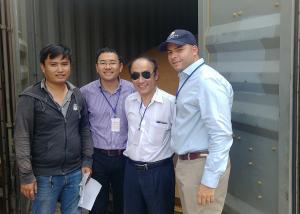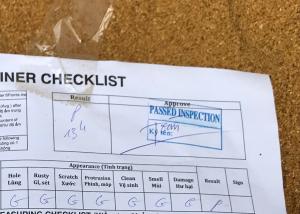Shipping containers containing 7,850 metric tons of U.S. distiller’s dried grains with solubles (DDGS) arrived into the Port of Ho Chi Minh City, Vietnam, between Oct. 25 and Nov. 10, 2017 – among the first orders filled following a September announcement by the Vietnamese government that it would lift its suspension of DDGS imports and ease fumigation requirements for U.S. corn and wheat imports.
“We are glad to see the first shipment and arrival of U.S. DDGS back into the Vietnamese market,” said Manuel Sanchez, U.S. Grains Council (USGC) regional director for South and Southeast Asia. “The Council collaborated closely with our own government, the Vietnamese government and industries in both countries to resolve this trade disruption.”
The Council’s marketing efforts and technical support on the ground in Vietnam have assisted the local feed industry in understanding how to use U.S. DDGS and led to increasing inclusion rates for this feed product in the Vietnamese swine and poultry sectors. As a result, Vietnam rapidly ramped up consumption levels, becoming one of the largest markets for U.S. DDGS.
However, following the detection of quarantine pests, the Vietnamese Plant Protection Department (PPD) issued a decision in October 2016 to temporarily suspend DDGS importation. As a result, Vietnam purchased 50 percent less U.S. DDGS in 2016/2017 at nearly 495,000 tons, compared to almost 986,000 tons the year prior.
The Council responded with an intense effort to address concerns and lift the suspension in coordination with the U.S. Department of Agriculture’s Animal and Plant Health Inspection Service (APHIS) and the Office of the U.S. Trade Representative (USTR). The groups worked together to address the Vietnamese government’s concerns and help return open access to one of the fastest growing feed markets in the world.
“Any disruption to the supply chain has a tremendous impact on market price,” Sanchez said. “The arrival of U.S. DDGS on Vietnamese shores signals a return to business as usual, benefitting both the Vietnamese feed sector and U.S. farmers and agribusiness.”
Learn more about the Council’s work in Vietnam here.



